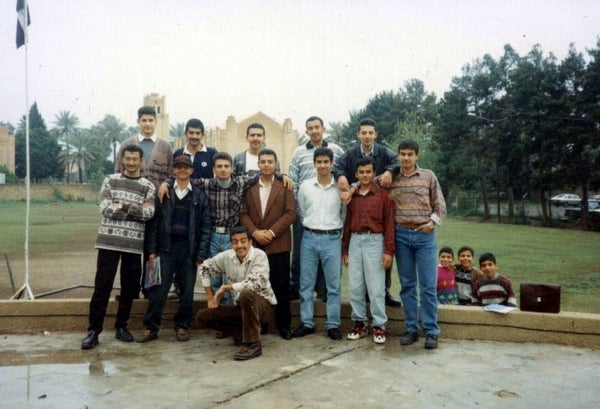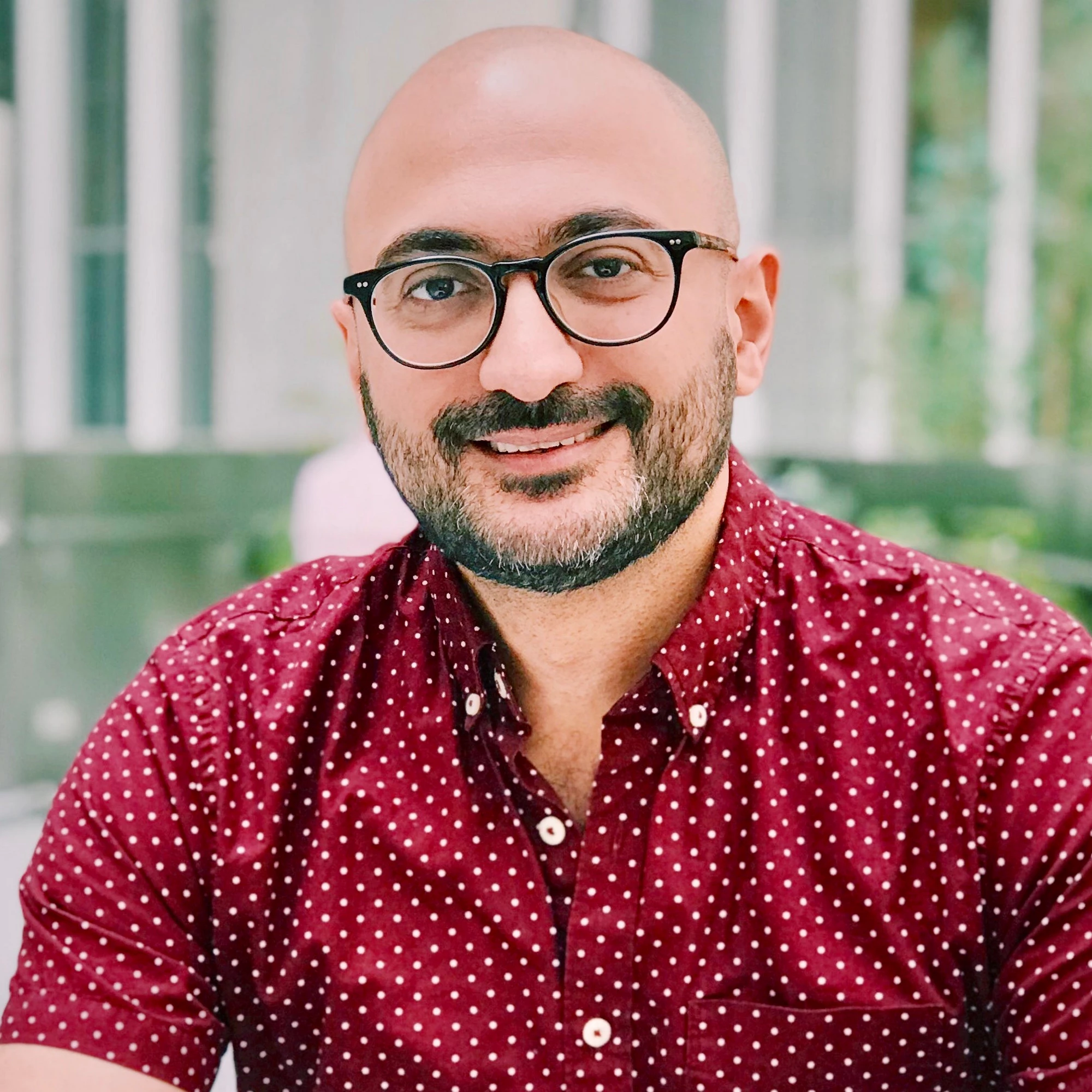
In 1992, I went to Baghdad College, a former Jesuit high school in Iraq. A freshman then, I was full of ambition and interest in writing. So, I decided to create the first school newspaper since the Jesuits were expelled in 1969.
I first pitched the idea to three of my friends. They loved it and supported it. Roles were discussed: I was the main reporter, editor-in-chief and calligrapher; Haider was a reporter; Ali was the producer and Ahmed oversaw production, finances and distribution.
We took the idea to the deputy principal, Mr. Usama Al-Douri, who agreed on condition that the paper would provide only educational information and nothing else. Right after that, we gathered at the tennis court and brainstormed what to call the newspaper.
Al-Ashabal, Haider suggested. It’s Arabic for lion cubs, in reference to youth and the school students, our main audience. We all agreed. It was the perfect name to resonate with the right audience.
We took the plan home where we all got our families’ blessings. I remember I couldn’t sleep that night, thinking about the inception of my idea. My dream was about to come true.
Throughout the next week, we had several meetings during class breaks. We interviewed students, created a spreadsheet for finances on paper, of course, because it was still 1992 in Iraq, identified a printing house and started producing the first edition. We hung posters everywhere in the school, advertising the launch. I was the school calligrapher, so I created what was back then considered revolutionary: the newspaper title with the tagline: A weekly informative newspaper for Baghdad College.
The school was abuzz, and we were approached by so many students praising and showing their interest in buying the paper. All proceeds went to financing the paper. It was a non-profit project. The first edition was a killer. All 100 copies were sold out on Day 1. For the next two weeks, we had to increase it to 150 to meet demand. We were beyond the moon. We were doing something creative, fun and informative.
But, three weeks later, the four of us were summoned to the principal’s office. We had no idea what had happened. We were scared. Why did the most powerful, black-mustached, scary man want to meet us? It had never happened to us before. It meant we were in trouble.
We got to his dark, 1920-built office room. I still remember the smell of the worn wooden furniture. He took off his glasses and raised a copy of the first edition of our newspaper and screamed without any previous warning: whose idea was this?
I was shaking like I was on a death row. I raised my hand without uttering a word. Inside of me, I was disoriented and confused. Why was he angry? I got the permission from the deputy principal and was highly encouraged by almost everyone.
He raised the paper higher and tore it to pieces. “No more [acts] like this from now on,” he screamed. “Don’t you know that such acts need to be approved by the Ministry of Information?”
And then it hit me. My heart sank. Of course, it did. We were living under the Saddam Hussein tyrannical regime. All I could think of then was if I was going to be the reason for having me and my entire family be hanged in one of the Ba'ath Party prisons.
The principal tore the two other editions and threw the pieces in our faces. "You’d better burn them all before they reach the ministry," he shouted. "I will not report you or punish you for this because you’re good students with high grade."
And just like that my project was crushed and we went back from a group of pioneering young student writers to just students following the regime propaganda. That day marked how much I realized that there was no press freedom. I was only 12 and it hit me hard.
Years passed, and I couldn't write anything other than school material for exams. I read a lot though. My father kept encouraging me and taking me with him to bookstores and libraries. I fell in love with the English language and went through years of inner conflict on what I wanted to be. I dropped out of engineering school to study English, and so I went to a private school where I got a full tuition scholarship every year for being the top of my class.
After graduation in 2003, I joined the Washington Post where I started as an interpreter and then a special correspondent in Iraq where I covered the war along with my American colleagues. Years passed and from one job to another to moving to the United States to get my master’s degree in Writing Studies at Saint Joseph’s University in Philadelphia, I set my own career path.
As we celebrate World Press Freedom Day today, I wish I could see my school principal again to tell him that tearing my newspaper 27 years ago did not stop me from being who I want to be. Against all odds, I became a journalist, a writer and now an editor, and I couldn't be prouder!


Join the Conversation